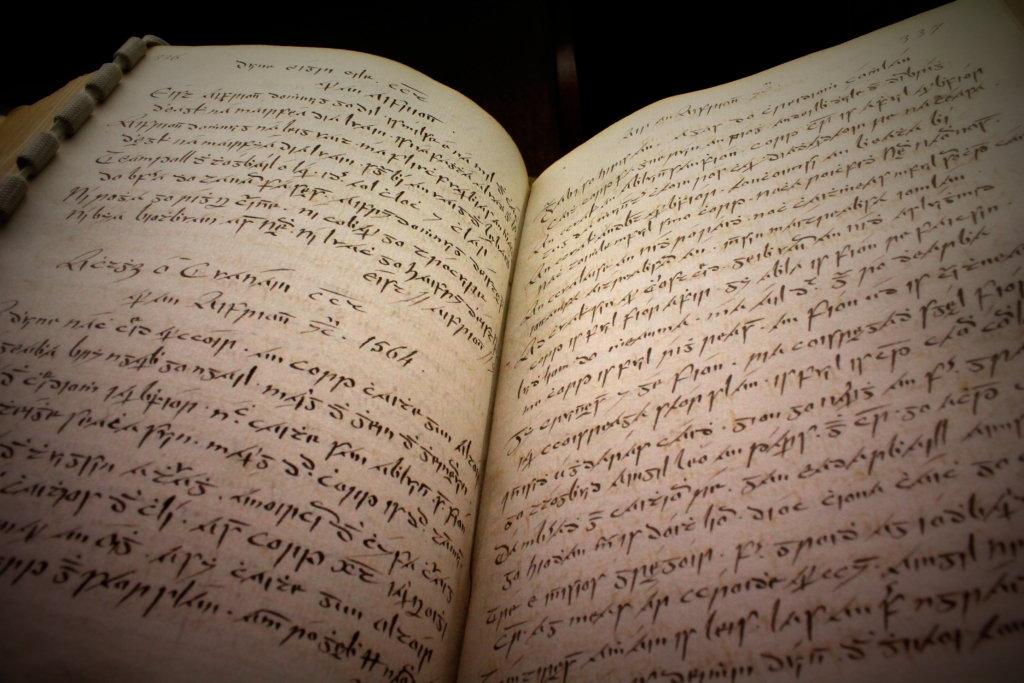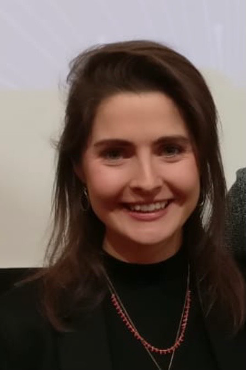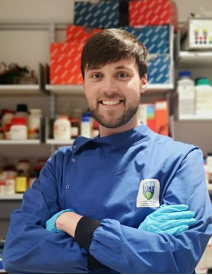Since the start of the COVID-19 crisis, researchers across the Irish university sector have played a pivotal role in contributing to Ireland’s national emergency response in every way possible. However, with many laboratories, research facilities, archives and field sites rendered inaccessible during the lockdown, thousands of researchers were at serious risk of not completing their contract or studies.
In July 2020, €47.7m was allocated to the Higher Education Authority (HEA) by the Department of Further, Higher Education, Research, Innovation and Science (DFHERIS) to assist in the provision of costed extensions for researchers whose work was seriously disrupted by the COVID-19 pandemic. The HEA COVID-19 Cost Extension Fund has been instrumental in supporting researchers through the pandemic, easing much of the stress and uncertainty experienced over this turbulent period while protecting Ireland’s investment in the national research and innovation system.
Now, we hear from the researchers themselves, about the positive impact of this funding on them both personally and professionally.
Impact of HEA Covid-19 Funds on researchers in their own words….

Pádraig Doolan, Dublin City University
Dublin City University
Researcher Awarded: Dr Pádraig Doolan
Dept: National Institute for Cellular Biotechnology
The Project:
Externally funded by Enterprise Ireland (EI), CyCLIN is a 13-month Commercialisation Award research project, focused on developing 3 mammalian cell culture products and commercialising these products for the international cell culture market.
“We did not have the funding to facilitate a longer extension for researchers salaries, so the HEA extension was key for us to avoid a breach of contract.”
Negative effect of the Pandemic on the project:
The COVID-19 pandemic resulted in a very substantial interruption to the CyCLIN project research activities, causing a product development hiatus of over four months – roughly 33% of the original project timeline. Such an interruption could not be readily addressed within the remaining timeframe (especially given extant restrictions on access, staffing numbers in laboratories, order deliveries etc.) and a new project workplan was negotiated with Enterprise Ireland (EI) (including a 1-month no-cost extension). However, this necessitated dropping several experiments, including three important deliverables.
These three deliverables provide key information to reassure potential customers of the reliability and durability of these new products – essential if we are to induce prospective buyers to incorporate our products in their processes. These three deliverables are also time- dependant – three months is required to complete each, however, all three can be processed in parallel, which means that a single three month extension allows us to deliver all three.
The lack of the storage/stability data would have negatively affected the commercial attractiveness of the products – they could not immediately be offered for sale, as they would be lacking key technical information to assist in closing customer and distributor sales. These products are also expected to be part of the product pipeline for a new commercial biotech spinout (hardCELL Ltd.) – their absence may
in turn adversely affect the investment potential of the proposed hardCELL Ltd. spinout and possibly the likelihood of the spinout succeeding.
Positive effect of the HEA COVID-19 Award on the project:
This award is allowing the project team to complete the research obligations of the CyCLIN project fully and successfully. It will also complete the product development requirements for all three prototypes and will ensure their suitability for commercial sale.
We did not have the funding to facilitate a longer extension to researcher salaries, so the HEA cost extension was key for us – these deliverables would not have been achieved otherwise, which technically would have been a breach of contract with EI.
Impact of the HEA COVID-19 Award on the Researcher Professionally and Personally:
On a personal level, the extension has allowed me to deliver on the promises made to EI which is important as they are a vital partner moving forward in the launch and success of hard CELL Ltd., so maintaining their confidence in the enterprise was of the utmost importance.

Maynooth University
Researchers Awarded: Dr Bernhard Bauer (postdoc), Dr Nora White (senior postdoc), Godstime Osarobo (RA), Truc Ha Nguyen and Francesco Felici (PhD students)
Dept: Department of Early Irish School of Celtic Studies
The Project:
The project “Chronologicum Hibernicum” is funded through an ERC Horizon 2020 Consolidator Grant, the project started in 2015 and aims at refining the understanding of variation and change in the Old Irish language during the period of c. 600‒950 AD.
“Without the HEA COVID-19 Award, it would not have been possible to complete the project in a way that would be useful for other scholars across the globe.”
Negative effect of the Pandemic on the project:
The indirect consequences of the pandemic have delayed the scheduled progress in the crucial final year of the project by many months. The project programmer lost his father to COVID-19 early on in the pandemic. Several of the team have family responsibilities. Those with young children were particularly impacted by the periods of school closure; another colleague had caring responsibilities for his aged mother, while another had difficulties getting timely medical treatment for an underlying condition. Since a project of this size is collective work where the progress of one team member depends on the progress of everybody else, the sum of these bigger and smaller personal disruptions amounted to a major overall delay in our work on the main deliverable, the database CorPH. The shutdown of university facilities has proven another considerable factor.
Positive effect of the HEA COVID-19 Award on the project:
When CorPH is completed, it can be expected to have a major impact on Celtic Studies and historical linguistics, in that it will constitute a radically innovative new resource for the field. This resource will then be the basis for future work for scholars across the world. The HEA COVID-19 support has been crucial in allowing the team to put in additional months of work to finish the project database CorPH. This has provided the opportunity to fix software glitches and to enhance the data structure, in order to ensure an easy and smooth performance for users after the end of the project. Three important publications have been completed during the support period. The team will now be able to organise a formal launch of the database through an online event before the end of the project. Two PhDs will now proceed to completion as a result of the award.
Impact of the HEA COVID-19 Award on the Researchers Professionally and Personally:
In addition to the disciplinary and the digital humanities experience acquired by those who have contributed to building the database, it will form an item of substantial import in their career achievements when seeking future employment. Without the HEA COVID-19 award, it would not be possible to complete CorPH in a way that would be useful for other scholars. A central impact is that the support allowed five early career researchers to continue working at a time when hundreds of thousands of other people have been furloughed or laid off. For the PhD students the HEA award meant they were able to complete their programmes of research, which will be examined this year.

National University of Ireland, Galway
Researcher Awarded: Lorraine Walker
Dept: School of Health Sciences
The Project:
I work on a World Health Organisation collaborative cross-national study (Health Behaviour in School-aged Children (HBSC)) that investigates the health behaviours, health outcomes and social environments of school-aged children across Europe and North America. The study is funded by the Department of Health.
“The support of the HEA has been so valuable to me, in terms of my work life and my home life; it came at exactly the right time.”
Effect of the Pandemic on the project:
Working from home proved to be extremely challenging. In addition to the logistical challenges of poor internet access and the lack of an appropriate work space, the period between March and September 2020 was very stressful. I experienced multiple symptoms, including eye and back strain, sleeplessness, headaches and inability to concentrate. Together, this meant, I was effectively unable to work during this period.
I was unable to complete two major deliverables; the ‘full variable report’ that is needed for building interactive data visuals for the website and the HBSC Trends Report that was due to be published by the Department of Health in 2020. I should have been working on the data analysis, quality control and report design for the Trends Report. I have specialist skills relevant to these deliverables and they could not have been reassigned without extra funding.
Effect of the HEA COVID-19 Award on the project:
This award has been essential to meeting my project milestones. I have completed both the full variable report, and the prototype interactive data visuals are now undergoing testing by other team members. The HBSC Trends report was a group project, and I was able to meet all my commitments on it. The Trends report was successfully launched by Minister Frank Feighan on March 8th. This means we have produced all our deliverables to the Department of Health and can maintain a positive collaborative relationship with them for the future.
Effect of the HEA COVID-19 Award on the Researcher Professionally and Personally:
HEA support has been so valuable to me, in terms of my work life and my home life; it came at exactly the right time. The end of a project is always stressful and I felt I was going to let my colleagues and our funders down. The funding has allowed me to complete all my own tasks and support other team members in their work. Over the years I have seen how when things start to go wrong it can start a downward spiral for people. The help of the HEA funding means that I have been able to regain perspective on my own contribution and be an equal to other team members. It has returned me to a level playing field for future research opportunities. Although the COVID-19 pandemic has brought so much uncertainty to all dimensions of life, being able to work productively and retain my home as a quiet sanctuary has provided much welcome stability.

Edel Murphy, University College Cork
University College Cork
Researcher Awarded: Edel Murphy
Dept: School of Chemistry
The Project:
Chemoenzymatic methods in asymmetric synthesis of Bioactive compounds.
This Project is funded by the Irish Research Council – Enterprise Partnership Scheme. The enterprise partner is Thermo Fisher Scientific. Using novel marine enzymes harvested from Lough Hyne in the South West of Cork, this project has identified the novel functionality of these enzymes in the asymmetric synthesis of pharmaceutically relevant compounds.
“Without this funding I would have been left with no other choice but to look for alternative employment, risking never completing my PhD.”
Negative effect of the Pandemic on the project:
The research laboratories in the School of Chemistry were closed for extensive periods of time when lockdown levels were at their highest. The closures halted the progress of the research project, as no work could be completed in the laboratory, therefore no new results were generated. For a synthetic chemist, the majority of the working time is spent in the laboratory carrying out experiments, purifying samples and analysing the purified samples, with 90% of the time spent in the laboratory and 10% of the time analysing the data. With work being limited to the desk, in a work from home situation, due to COVID-19, there was a limited amount that could be completed during the closure. The critically important experiments, focused on biocatalysis mediated by the enzyme of interest, require access to both the chemistry and microbiology laboratories to enable preparation and quantification of the biocatalyst in advance of their use in the synthetic experiments.
Positive effect of the HEA COVID-19 Award on the project:
The HEA COVID-19 award is hugely beneficial for this project – without this funding the project would have experienced devastating effects. The award of this funding will make sure that the project is finished to a very high standard allowing publication of this work in a scientific journal which will help to advance my career. It will also deliver on the commitments made to the enterprise partner. Through this award I was enabled to continue working in the laboratory full time, to allow the collaboration with the BIOMERIT research centre to be continued in a successful and rewarding manner. The experiments that I need to complete will take many hours in the laboratory, to isolate and purify the required biocatalyst and explore its application in synthesis. Trying to complete this work on a part time basis would not be successful and risk jeopardising the investment to date in the project.
Impact of the HEA COVID-19 Award on the Researchers Professionally and Personally:
The awarding of the funding has meant that I will be able to complete my PhD to a very high standard supported by strong scientific publications that demonstrate the quality and value of my research. Finishing my PhD, thanks to the HEA COVID-19 funding, will give me the opportunity to fulfil my lifelong career goal to work in research and development in the pharmaceutical sector. To gain employment at the desired level I will need to complete my PhD. This funding has also made sure that I will be able to continue working on my PhD project without the added stress and worry of how I will pay for my rent, bills and living expenses. Without this funding I would have been left with no other choice but to look for alternative employment, risking never completing my PhD. This would have an irreparable impact on the progress of my research and professional career development.

Conor Quinn,Univ
University College Dublin
Researcher Awarded: Conor Quinn
Dept: School of Biomolecular and Biomedical Science
The Project:
Funded by the National Children’s Hospital foundation and UCD One Health transatlantic alliance this project focuses onverotoxin-producing E. coli (VTEC) which cause bloody diarrhoea.
“The COVID-19 Fund has helped to increase the quality of my PhD thesis content and reduced the level of stress that comes with doing a PhD, especially in these unprecedented times we are facing.”
Negative effect of the Pandemic on the project:
Due to the COVID-19 pandemic access to the Conway Institute was extremely restricted from March to June, meaning no laboratory work could be conducted. From June to August the labs were operating at 50% capacity, which involved working half days only. Just prior to the first lock down immunisation studies were due to begin in mice to see if the vaccine antigens identified were effective in protecting mice against VTEC infections. Due to COVID-19 restrictions, the first of three immunisation trials was delayed until June, the second until November and the third study had to be postponed until 2021. Part of my final year funding in collaboration with UC Davis – California is to investigate the prevalence of our previously identified antigens in a dairy herd population. Due to the COVID-19 pandemic, our collaborators were unable to collect and send samples from dairy cows from their lab in California until October 2020. For these reasons, it was clear that I would be unable to complete all the necessary experiments to submit my PhD thesis on time.
Positive effect of the HEA COVID-19 Award on the project:
With the help of the HEA COVID-19 award, I have regained critical lost time by completing two of three immunisation trials and will have the time to complete the final clinical trial, as well as screening almost 60% of the cow samples sent by UC-Davis. This work will provide a compelling insight into the prevalence of our identified antigens among VTEC shed in dairy herds and will increase the quality of my PhD thesis significantly by obtaining crucial data worthy of publications.
Impact of the HEA COVID-19 Award on the Researcher Professionally and Personally:
Professionally, the additional time awarded by the HEA COVID-19 cost extension has helped to increase the quality of my PhD thesis content and allowed the collection of crucial data. Furthermore, being able to complete delayed work will subsequently strengthen the collaborative links between UCD and UC Davis.
Personally, the cost extension has provided extra financial support for my additional time in the laboratory. Without the monthly stipend, completion of my work would have proven more difficult to achieve. Moreover, this opportunity has allowed me the time to acquire new skills and learn additional techniques, contributing to my overall learning progression. It has subsequently reduced the level of stress that comes with doing a PhD, especially in these unprecedented times we are facing. Overall, I am now in a better position to complete my PhD thesis and move into the workforce.

Marie Glynn, University of Limerick
University of Limerick
Researcher Awarded: Marie Glynn
Dept: Irish World Academy of Music and Dance, School of Humanities.
The Project:
The study explores the possibilities of a music therapist becoming an integral part of the multidisciplinary team working within a large intellectual disability organisation in Ireland.
“In 2020 I was beginning to lose hope that I would ever finish my project. The award has allowed me to continue on my intended career path with the hope of eventually moving forward with my research career.”
Negative effect of the Pandemic on the project:
COVID-19 has put me in a difficult position with regards the completion of this study. My own approach to the research has been quite immersive and focusing on the experiential factors of music therapy service development. As a result, I have undertaken the task of integrating myself into established working teams, and working alongside them to discover the important factors of new service development in healthcare settings. Prior to the COVID-19 crises, I was at the final stages of data collection and was preparing to conduct focus groups within healthcare organisations. This opportunity suddenly became unfeasible due to lockdown. As a result I needed to readdress the previously developed methodology to continue working on my study by developing new means of accessing data that would be pertinent to exploring the chosen topic.
Positive effect of the HEA COVID-19 Award on the project:
The period of interruption caused by the COVID-19 crises has most significantly affected the completion of this project by denying access to potential participants within healthcare settings. The restrictions
in place have resulted in the cessation of any access to healthcare organisations and other healthcare professionals working within to protect the vulnerable people they support. This has resulted in the cancellation of the organised focus groups that were a crucial means of data collection. This called for a significant redevelopment in the methodological approach and also the methods employed to access the data needed to address the research questions. The redevelopment of the project has taken a considerable amount of time, consequentially pushing the completion date of the study. The HEA COVID-19 award has ensured that the time needed to redevelop the project has not been in vain. With the support of this award, the project is now well underway to be completed by 2021, with thesis submission due by May.
Impact of the HEA COVID-19 Award on the Researchers Professionally and Personally:
I am now in the position to complete my PhD study and do not have to leave the programme. Many of the relevant research roles opening in both the private and public sector require the successful completion of a PhD. The award has allowed me to continue on my intended career path with the hope of eventually moving forward with my research career. Personally, I am now in the position to remain focused within my research. In 2020 I was beginning to lose hope that I would ever finish the project. The HEA COVID-19 award is the reason I can now complete and fulfil this professional dream of mine.